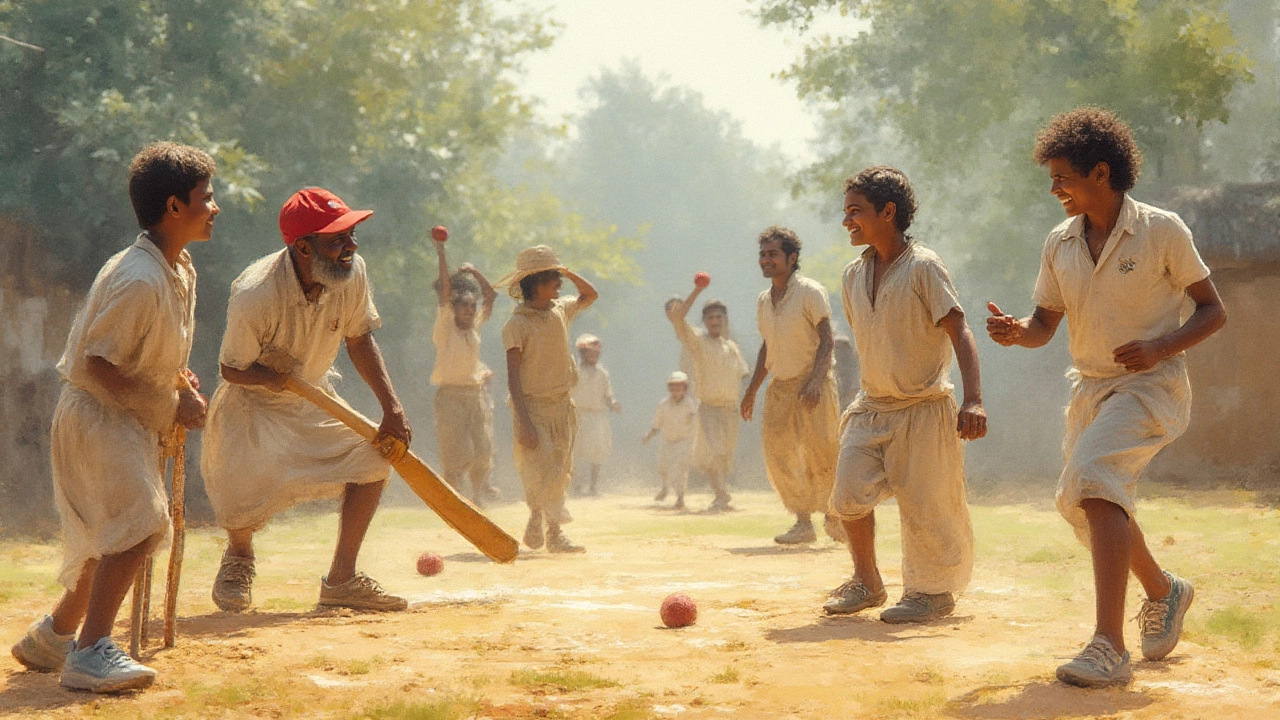You probably know someone who has to win at everything, whether it’s board games, job interviews, or who finishes a cup of coffee first. Maybe that’s you. But where does this urge even come from? Is being competitive a good thing, or does it mean you’re destined to be that guy no one wants to play Monopoly with? There’s a lot more to it than just a need to win. Competitive drive runs deep into our personalities, histories, even the chemicals swirling around in our brains. Sometimes, it’s the fuel for stunning success. At other times, it leads to burnout, jealousy, and broken friendships. Let’s really dig into this and figure out what it means if you find yourself sizing up the competition more often than you’d like to admit.
What Fuels Competitiveness: Nature, Nurture, or Both?
Competitiveness isn’t just about who yells “I win!” the loudest. It’s a mix of biology, upbringing, and even culture. Ever notice young kids racing to be first in line? That’s not random—there’s actually some research pointing to our evolutionary past to explain it. Anthropologists have found that early humans who competed for food, shelter, or mates had a better chance of survival and passing on their genes. So, in a way, your need to win could be hardwired. When you throw in a shot of dopamine (that feel-good brain chemical you get when you succeed), the reward circuit in your head lights up like you’ve just landed on Mars.
But genes aren’t the whole story. Watch a kid who grew up in a family where everyone cheers for personal bests, and you can almost bet that kid will care about being top of the class. On the other hand, in households where “just do your best” beats “win at all costs,” competitiveness might sound a little less intense. Then there’s culture. In a 2020 study, researchers found people in the US and South Korea ranked highest for competitive attitudes, while Norwegians and Japanese participants scored lower. That tells you your environment nudges your competitive setting up or down.
You’re also likely to find different flavors of competitiveness depending on your personality. People who score high in traits like ambition and assertiveness, often called “Type A” personalities, naturally lean into competition. Meanwhile, those more interested in cooperation than confrontation aren’t as motivated by the idea of winning. Here’s something that might surprise you: competitiveness is not the same as being aggressive. It’s possible to strive for the top without steamrolling others.
Let’s not forget the social side. Some schools love ranking students, some workplaces thrive on “Employee of the Month” boards. Social pressure plays a role, too. When the people around you value winning, you usually start caring more, too. It's that classic “keeping up with the Joneses” effect. Famous psychologist Carol Dweck, known for her research on mindsets, found that people with a “growth mindset”—those who believe they can improve with effort—tend to be competitive in healthy, productive ways. If you’re working on self-improvement, competitiveness often shows up as a drive to beat your personal best.
Common Signs You’re Competitive (And How They Show Up in Daily Life)
You’d think being competitive is obvious, but it shows up in sneaky ways you might not expect. Love checking your phone for the number of likes you got compared to your friend? That’s competition. Let’s put it out there: competitiveness isn’t just for athletes or corporate sharks. It can pop up in friendships, hobbies, even romantic relationships.
Here’s a quick list that will sound familiar if you’re wired this way:
- You measure your progress by comparing yourself to others, not just your past self.
- Maybe you feel a twinge of jealousy when a friend lands a big win, even if you’re happy for them.
- You celebrate victories—big or small—like they’re a personal trophy.
- You notice who gets praised or promoted at work. You’re probably plotting how to get ahead, even if just a little bit.
- You hate losing, whether it’s a weekly quiz or a family cricket match. Sometimes, losing sticks with you for days.
- You sometimes (or often) exaggerate wins or forget to mention losses in stories.
Here’s where things get interesting: not all competitiveness is obvious. Psychologists call it “covert competitiveness” when someone hides their drive, maybe to avoid looking pushy or to keep the peace. So the person who shrugs and says “it’s just a game” but is secretly keeping mental score? They’re competing, too.
Workplaces, especially in sales or fast-paced industries, are ripe for competition. In 2023, a study published in the Journal of Organizational Behavior found more than 60 percent of employees felt regular competition with coworkers, even in companies stressing teamwork. Friendly rivalry can motivate you to do your best work, but it can also make for a tense lunch break or even sabotage group projects. Ever had someone take credit for your idea in a group assignment? That’s the dark side of workplace competition in action.
An experiment by researchers at Stanford revealed something neat: students who ranked high for competitiveness worked longer and solved more puzzles when prizes were on the line—sometimes three times as many attempts as their less-competitive peers. The drive can be powerful, but it’s not always easy to keep it fun or healthy.
Competitiveness doesn’t turn off after work or class. You might find yourself trying to outrun your buddy on a morning jog, comparing who wakes up earlier, or even making sure your garden blooms bigger. Sometimes it’s subtle, like trying to get more laughs at a party.

The Upsides: When Competitiveness Powers Growth and Success
Here’s the crazy part: if you use it right, being competitive can launch you ahead—sometimes way ahead. Take sports—athletes like PV Sindhu didn’t make it to the top of their games just by showing up and hoping for the best. Even in tech, look at stories from people like Elon Musk or Mark Zuckerberg, who turned an endless itch to improve into companies that shaped the world. The secret is not just wanting to win, but what you do with that feeling.
This hunger can sharpen your focus, fire up your learning, and push you through tough stretches when most people would bail. Scientists from the University of Rochester did a study that showed students with a competitive mindset set bigger goals and stuck to them more than their less-competitive classmates. They even performed better in high-pressure situations. That’s the magic of goal-setting tied up with competition. Your brain gets a “reward” hit, which turns into a feedback loop—win, get a rush, chase the next win.
At work, a dose of healthy rivalry can kick creativity into gear. Ever heard of “coopetition”? That’s when strong competitors help each other just enough to make both sides better. Leading researchers say people in competitive workplaces who manage to keep things respectful usually end up setting higher standards and sharing smarter ideas, since each wants to be the first to the finish line.
Here’s a simple fact: competitive people are more likely to ask for feedback—the honest, sometimes even brutal kind. And that’s how you get better, whether you’re a chef perfecting a recipe, a coder debugging software, or a student aiming for a scholarship. People who aren’t afraid to dive into contests, hackathons, or debate rounds are usually less scared of failure, too. They’ve failed before and bounced back—often stronger.
Success doesn’t have to mean beating others. For many, it’s about smashing your own records. A marathon runner who only wants to shave a few seconds off last year’s time is driven by inner competition, not just the urge to beat the crowd. There’s a reason fitness tech companies brag that 70% of their users improve their performance when they can compare stats—even if their only rival is yesterday’s version of themselves.
Every year, top universities and employers say they look for “self-starters”—folks who won’t settle for average. That extra edge, often born from competition, sends your resume right to the top. But here’s the catch: winners who lift others up, not just themselves, stay ahead longer. The world changes fast, and the person who works well within teams, shares credit, and bounces back gracefully after losses is often seen as the true leader. Think about the managers who publicly cheer on others—they tend to have the most loyal teams.
The Downsides: When Competitiveness Turns Harmful
Let’s get real. Sometimes, being competitive tips over into something ugly. Instead of chasing personal bests, people end up trash-talking, burning bridges, or feeling miserable if they don’t come out on top. Psychologists call this “maladaptive competitiveness.” Studies going back decades have linked it to anxiety, low self-esteem, and even health problems. And it’s not just theory—one Harvard study in 2019 found people high on the competitive scale were twice as likely to report poor sleep and work stress compared to their classmates.
Obsessing about being best can wreck relationships. If you always have to have the last word or win every argument, pretty soon friends and partners get tired. Ever notice people avoiding group games or debates with someone? Nobody likes a sore winner—or worse, a sore loser. Then there’s the problem of comparing yourself to others online. Social media makes it way too easy to measure your “success” next to strangers who only post their wins. According to the American Psychological Association, nearly 37% of young adults report feeling competitive stress while scrolling Instagram or LinkedIn.
Here’s another pitfall: burnout. In fields where everyone is pushing nonstop, even small setbacks can feel like huge failures. Doctors in high-stress hospitals, startup founders, and professional athletes all report higher risks of depression tied to a culture that celebrates only the top spot. You might overtrain, skip meals, lose sleep—or worse, start cutting corners just to win. There’s a real thin line between healthy ambition and unhealthy obsession.
The dark side shows at work too. In one survey of IT professionals, 42% admitted to withholding info from coworkers just to keep their edge, even if it slowed the whole team down. That’s not just mean, it backfires. Teams with trust and healthy competition actually outproduce “every man for himself” cultures, according to a 2022 review done by the Wharton School.
Here’s a quick table showing how the upsides and downsides of competitiveness can play out:
| Upside | Downside |
|---|---|
| Bigger goals, higher effort | Fear of failure, anxiety |
| Strong focus and resilience | Poor relationships, jealousy |
| Gets feedback and improves faster | Risk of burnout, health issues |
| Drives innovation under pressure | Cutthroat tactics, lack of trust |
If you find yourself getting stressed, snapping at people, or waking up in the night thinking about winning (or losing), it might be time to rethink how much weight you put on being the best.

Making Your Competitiveness Work for You
Alright, let’s stop pretending competitiveness is all good or all bad. If you channel it the right way, it can become a secret weapon instead of a wrecking ball. First, try flipping the script: see competition as a way to improve, not to prove. There’s a quiet confidence in knowing you’re getting sharper, stronger, or smarter, rather than just chasing trophies.
One hack? Measure yourself against your own past results. Apps like Strava, Duolingo, or even good old-fashioned journals let you compete with who you were yesterday. Studies out of MIT back up the idea that people grow faster this way, and they’re less likely to sweat other people’s wins.
If you’re in a team, set shared goals and cheer your squad’s progress, not just your own. According to Gallup workplace research from 2024, teams where competition stays friendly and transparent see project completion rates up to 21% higher than teams stuck in cutthroat mode.
Craving an even bigger edge? Seek feedback from people you trust, not just random critics. Look at mistakes as chances to get better, not proof you’ll never win. This is where the famous growth mindset kicks in again—seeing setbacks as fuel for your next run.
But don’t go it alone. Competitive folks sometimes get a bad rep, so take pride in being the one who lifts up others too. Be vocal about what teammates do right, share strategies, and turn wins into something worth celebrating together. Studies in positive psychology show the happiness “boost” from shared wins lasts longer than the rush from solo ones.
At the end of the day, competitiveness isn’t something you need to hide or hype up—it’s just a tool. If you know your drive, you get to choose how it shapes your life. Hungry for more? Find ways to put your competitive side to good use. Mentor younger students, volunteer, join a club where you build each other up. The world could use more people who know how to channel competitiveness for the greater good.

